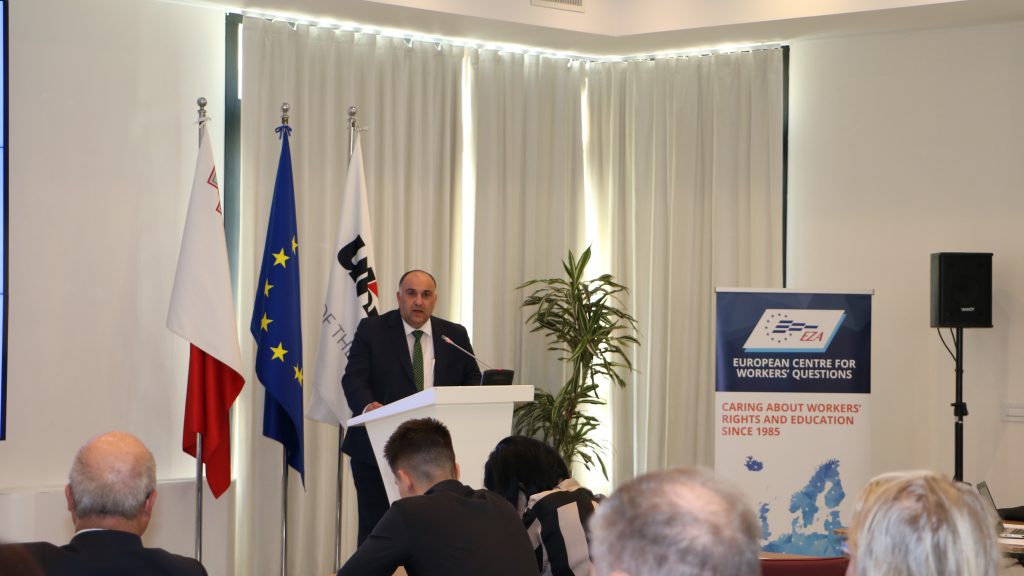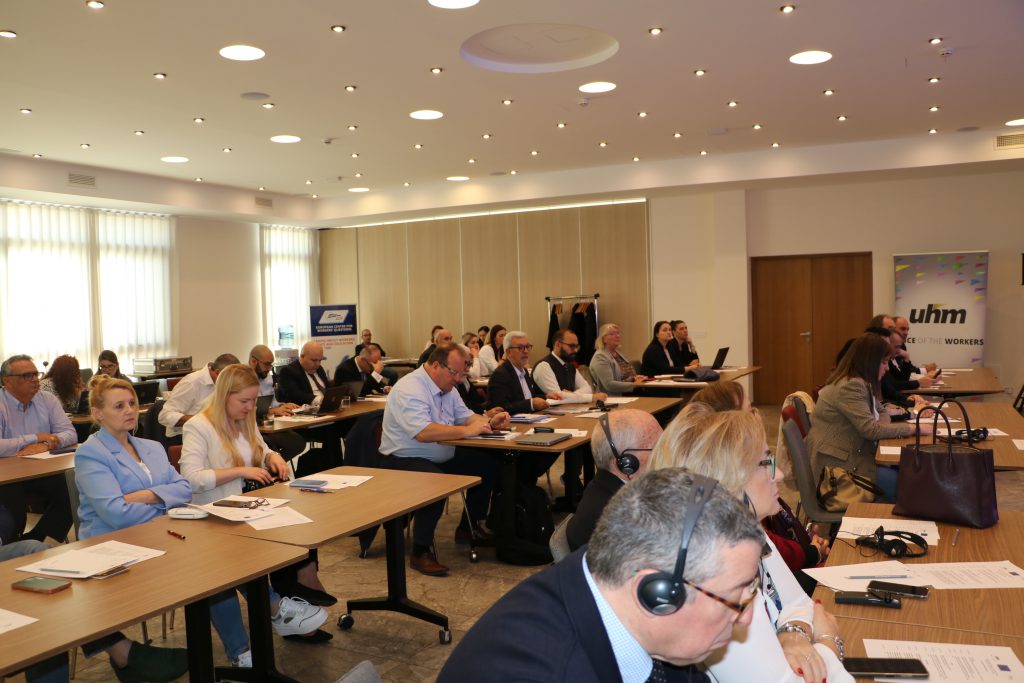Minimum Wage under the spotlight in 2023 UHM-EZA Conference

Over 40 delegates from across Europe took part in a conference themed Minimum Wages – The way Forward. The event held at the Urban Valley Resort, in San Gwann between 30th November and 1st December, was organised by UHM Voice of the Workers, with the support of EZA (European Centre for Workers’ Questions).
In his keynote address UHM CEO Josef Vella remarked that collective bargaining was key to support low-income workers while cautioning against sporadic measures or quick fixes. “If we embark on an exercise whereby minimum wages are increased sporadically without any holistic approach, we will start eroding collective bargaining which in turn will distort the labour market and wage relativity. Measures meant to award overnight increases to sectors of workers will just result in increasing the number of minimum wage earners.”
He added that the proper way should remain that of having unions negotiate on behalf of their members as this guarantees an even distribution of wealth coupled with better productivity, career progression paths and opportunities to increase salaries through training.
The Adequate Minimum Wage Directive which is set to come into force by the end of next year also featured heavily on the agenda. Under this law there will be benchmarks to ensure a minimum level of income though it will be up to the countries to decide how. Moreover, it calls on governments to come up with an action plan to increase the number of employees covered by collective bargaining to 80%. In this respect the UHM CEO insisted that this must translate to measures to increase union membership. “Any other measure which seeks to meet this target in an artificial manner without having a direct positive impact on union membership will be just one which will be papering over the cracks,” Vella said.

The two-day event also tackled issues related to cheap labour, combating inflation and how to use collective bargaining to ensure an adequate income. The issue of free-riders (non-union members who benefit nonetheless from collective bargaining) was also on the agenda alongside the UHM’s proposal for mandatory membership for low-income workers.
Apart from presentations, delegates also had the opportunity to engage in a number of debates on key issues like measure to fight against brain drain, the future of the minimum wage, and how to ensure a decent living. Economist Gordon Cordina gave his own perspective on how minimum wages can promote fairness and inclusiveness in the labour market within the context of the recent agreement reached by the low wage commission.
Delegates were also presented with various studies on the rise in the cost of living including the latest data of the UHM supermarket price monitoring exercise. Moreover, the debate looked at concepts such as living income and living wage with the aid of Caritas which presented its studies in a presentation delivered by Mr Anthony Gatt and Professor Suzanne Piscopo.
Eurofound researcher Christine Aumayr-Pintar gave a detailed overview of the situation regarding minimum wages across EU member states, while the Head of the EU representation in Malta Lorenzo Zahra outlined the main provisions of the Adequate Minimum Wage Directive. EESC Vice President Prof. Philip Von Brockdorff delivered a presentation on the perils of having an economy based on cheap labour while UHM Director Mario Sacco spoke on the benefits of collective bargaining.
The panel debates featured MEP candidates Clint Flores and David Agius, Employment Shadow Minister Ivan Castillo, the CEO of the Foundation for Social Welfare Services Alfred Grixti, Ing.Stephen Sammut from MCAST and CMTU Vice President William Portelli.
Meanwhile, UHM is already planning for the 2024 conference which will focus on Capacity building of a modern trade union particularly the strengthening of the educational and digitalization aspects.
